
Jacob Thorstensen
Assistant Professor, Faculty of Health Sciences & Medicine, Bond University
I am a neuroscientist and academic at Bond University in Australia. I primarily research human motor control, namely how the brain and spinal cord control muscles.
Less ![]()
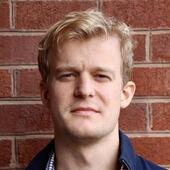
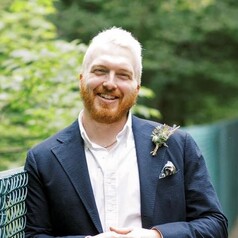
Jacob White
Research Assistant, Michigan State University
I am currently a master's student and research assistant in the Department of Community Sustainability. Broadly speaking, I am interested in the social, temporal, and spatial dimensions of renewable energy technology. My current research focuses on local community involvement and perceptions of solar energy projects and my master’s thesis work specifically is focused on elucidating urban resident preferences and perceptions of large-scale solar projects developed on urban brownfields and in urban contexts. Outside of work I enjoy napping with my cats, hiking with my partner, and complaining about suburban sprawl.
I have a BA in Political Science and BSc in Microbiology from Miami University. Before joining the CSUS Department in the fall of 2022 I was a sales representative at ThermoFisher Scientific.
Less ![]()
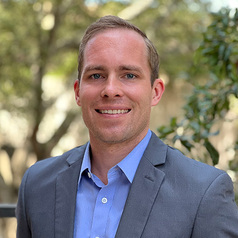
Jacob A. Waddingham
Assistant Professor of Management, Texas State University
Dr. Jacob A. Waddingham is an Assistant Professor of Management in the McCoy College of Business at Texas State University. He earned a PhD in Management from Auburn University, an MBA from Iowa State University, and BS degrees in Journalism and Political Science from the University of Texas at Tyler. His research explores how organizations and entrepreneurs manage stakeholder perceptions, and stakeholder attitudes and behaviors. Jacob’s research has been published in multiple outlets, including Journal of Management and Journal of International Business Studies.
Less ![]()
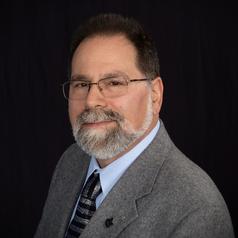
Jacob F. Love
Lecturer in Religious Studies, University of Tennessee
I am a Lecturer in Religious Studies responsible for UT’s Biblical Hebrew program. I also teach the Hebrew Bible in English, Introduction to Judaism, and Survey of Early Rabbinic Literature. For the History Department I have taught Early Jewish History (Biblical through Early Medieval Period).
Less ![]()
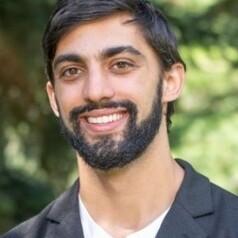
Jacob S. Suissa
Assistant Professor of Plant Evolutionary Biology, University of Tennessee
As a plant evolutionary biologist, I apply my research and education experience to understand how plant traits are constructed, how they function, and how they have evolved across geologic time. The techniques I use to ask and answer these fundamental questions integrate anatomy, physiology, and phylogenetics, using both large-scale analyses across thousands of species and small-scale analyses narrowing in on key organisms.
I am also a science communicator working closely with a fellow botanist to democratize the study of plant biology through the production of academically rigorous (yet accessible) videos free to the public on social media. Check us out @letsbotanize.
Less ![]()
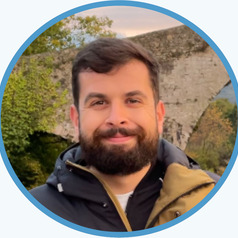
Jacobo García Queiruga
Profesor Interino en el Área de Optometría (OD, MSc, PhD), Universidade de Santiago de Compostela
Profesor Interino e Investigador en el Área de Optometría. Impartiendo docencia en materias del Grado en Óptica y Optometría y Máster en Optometría de la Universidade de Santiago de Compostela. Doctor en Medicina Molecular por la Universidade de Santiago de Compostela desde 2023, con más de 15 publicaciones en revistas científicas indexadas a JCR.
Less ![]()
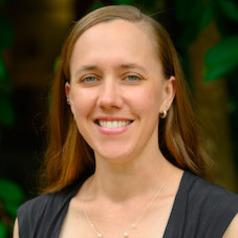
Jacqueline Allen
Senior Lecturer, Griffith University
Dr Allen's research is about the development of antisocial behaviour and mental health problems from childhood to young adulthood. Her PhD in developmental psychology examined the risk posed by school bullying for physical aggression and violence in young adulthood, with a particular focus on the role of alcohol use in exacerbating this relationship.
Less ![]()

Jacqueline Boyd
Jacqueline is currently a lecturer in Animal Science at Nottingham Trent University, with a passion for domestic species, notably dogs and horses. Her academic and research interests are broad ranging, from the molecular biology of parasitic nematodes to the genetic basis of cryptobiosis and jump kinematics in agility dogs. Jacqueline is very much an academic practitioner and recognises the value of science that has direct application and potential to improve animal health and welfare.
Less ![]()
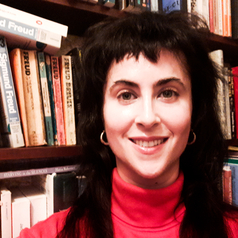
Jacqueline Dalziell
Lecturer of History and Philosophy of Science, University of Sydney
Jacqueline Dalziell is a Lecturer in the School of the History and Philosophy of Science, at the University of Sydney. Previously, she held postdoctoral positions at UNSW (Environmental Humanities) and Macquarie University (Philosophy) before joining the University of Sydney in 2023. Jacqueline’s scholarship merges contemporary critical theory (STS, feminist) with perspectives from classical social theory (philosophy, psychoanalysis). Her research has been published in journals such as Australian Feminist Studies and the Journal of French and Francophone Philosophy.
Less ![]()

Jacqueline Fear-Segal
Emeritus Professor in the School of Art, Media and American Studies, University of East Anglia
As an undergraduate Dr Fear-Segal studied at the University of East Anglia and as a postgraduate at University College London and Harvard University.
She spent two separate years as a visiting lecturer at the Sorbonne Nouvelle, Paris teaching American Civilization, and also a brief stint as a script writer for the BBC World Service. She spent the academic year, 1999-2000, at Dickinson College, Carlisle, Pennsylvania , on an academic teaching exchange with Professor Amy Farrell. The nineteenth and early twentieth century have been my main focus, but land disputes, education, missionary activity, and issues of identity interest me in all periods.
Her areas of expertise include American Indian/Native American affairs in the USA, with a specialism in modern events and 19th-century Indian boarding schools and education; American West; immigration and the process of Americanisation; race and racism in the USA; visual culture, in particular photography.
Less ![]()

Jacqueline Hernandez
Assistant Professor of Dietetics and Nutrition, Florida International University
Less ![]()
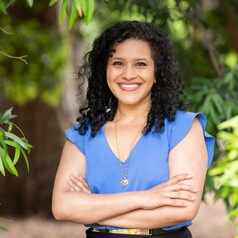
Jacqueline Kuruppu
PhD candidate, The University of Melbourne
Jacqueline has recently completed her PhD exploring the response to child abuse and neglect in primary care settings. Currently Jacqueline is working with in the area of child sexual abuse on projects such as the Stop It Now! Australia Program Evaluation and the AVA Project, which aims to explore the experiences and services needs of survivors of harmful sexual behaviour.
Less ![]()
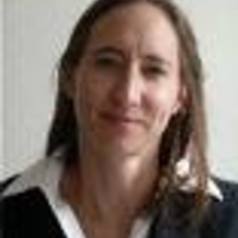
Jacqueline M Klopp
Associate Research Scholar, Center for Sustainable Urban Development, Columbia University
Jacqueline Klopp is an Associate Research Scholar at the Center for Sustainable Urban Development at Columbia University and a Research Associate at the University of Nairobi Institute for Development Studies, Previously, she taught the politics of development at the School of International and Public Affairs for many years. A political scientist by training, her work focuses on the political processes around land-use, transportation, violence, displacement and planning in African cities. Klopp is the author of articles for Africa Today, African Studies Review, African Studies, Canadian Journal of African Studies, Comparative Politics, Forced Migration Review, Urban Forum, World Policy Review among others.
Recently, she has been experimenting with creative urban mapping projects for both analysis and advocacy and is a founding member of the DigitalMatatus consortium which has produced the first open transit data and public transit map for Nairobi's quasi-formal "matatu" transit system. She helped start the blogs CairofromBelow and nairobiplanninginnovations.com to provide more grounded and open urban information to citizens. She is also a founder and Board member of the Internal Displacement Policy and Advocacy Center (IDPAC) based in Nakuru, Kenya. She is currently writing a book on the politics of planning in Nairobi.
Klopp received her B.A. from Harvard University in Physics and her Ph.D. in Political Science from McGill University.
Less ![]()

Jacqueline Meredith
Lecturer in Law, Swinburne University of Technology
Jacqueline Meredith is a Lecturer at Swinburne Law School. She is also a member of the Centre for Employment and Labour Relations Law at Melbourne Law School.
Her teaching and research interests lie primarily in the fields of employment law, labour law, and tort law.
Jacqueline has published in top-ranked academic journals in the areas of labour law and medical law and ethics, and has co-authored a book on the intersection of law and technology.
Less ![]()

Jacqueline Millner
Professor in Visual Arts, La Trobe University
Jacqueline Millner is an art theorist specialising in contemporary art and its intersections with social, political and cultural change. Coming from an interdisciplinary background that includes law, political science and visual arts, Jacqueline draws on social history of art and feminist perspectives as well as on political theory and aesthetics to re-think the link between art and broader systems of power. Her interest is also in exploring how contemporary art and creative practices can model alternative values that are urgently needed to address the excesses of neoliberalism.
Less ![]()
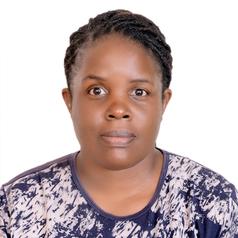
Jacqueline Nassimbwa
Research Associate, School of Child and Youth Care, University of Victoria
I hold a Master of Science in International Health from Charite Universitaats Medizin in Berlin, University College London, and Karolinska Institutet in Sweden. Currently, I am a graduate student finalizing a Master of Arts Program in Children, Youths, Family and Community Studies at the School of Child and Youth Care. I coordinate the field work on a project on behalf of my supervisor, a Professor at UVic, titled Centering Marginal Voices. The project is funded by the Social Sciences and Humanities Research Council of Canada (SSHRC) and it aims to build research and advocacy capacity of young mothers to claim their sexual and reproductive health rights (SRHR).
I am a Sexual Reproductive Health and Rights (SRHR) professional with over 15 years of experience working with civil society in Uganda. I have proficiency in rights-based programming, grants management, capacity building, and research. I am a national master trainer and researcher on SRHR.
Less ![]()
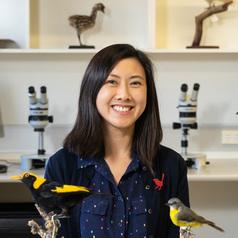
Jacqueline Nguyen
Scientific Officer in Ornithology, Australian Museum, and ARC DECRA Fellow, Flinders University
I am an Australian Research Council DECRA Fellow at Flinders University and a Scientific Officer in Ornithology at the Australian Museum. My research interests include the systematics, morphology, and evolution of fossil and modern birds, especially Australian songbirds. I am interested in using a combination of fossils, morphology, and DNA to gain a better understanding of the evolutionary history of birds, both living and extinct.
Less ![]()
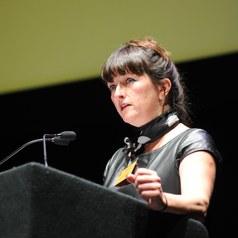
Jacqueline O'Reilly
Co-Director of the ESRC Centre on Digital Futures at Work, University of Sussex
I am the Principal Investigator and Co-Director for the Digital Futures at Work Research Centre (2020-2024), together with Professor Mark Stuart.
I joined the University of Sussex Business School in 2017 as Professor of Comparative Human Resource Management and I am the UK lead on the EU Horizon 2020 EUROSHIP project on social protection in Europe (2020-23).
Background
After completing my doctorate at Nuffield College, University of Oxford on an Anglo-French comparison of employment practices in the banking sector, I worked for ten years at the Social Science Research Centre Berlin (WZB), Germany. I have also held teaching and research posts at Sciences Politiques in Paris, and at London, Manchester and Brighton Universities in the UK. In 2000, I was awarded a Jean Monnet Research Fellowship at the European University Institute in Florence and appointed Fellow of the Academy of Social Sciences (FAcSS) in 2019.
The ESRC, the Leverhulme Trust, the European Commission, the European Science Foundation and Santander Bank have funded my research. This includes coordinating a EU FP7 funded large-scale research project STYLE: Strategic Transitions for Youth Labour in Europe (www.style-research.eu) (2014-17) and being the UK lead on the EU Horizon 2020 project NEGOTIATE on Overcoming early job-insecurity in Europe (www.negotiate-research.eu) (2015-18).
Currently, I am on the editorial board of Zeitschrift für Sozialreform (De Gruyter) University of Bremen, Germany. I have provided consultation services to HM Treasury, Full Employment Team and the UK Cabinet Office Open Innovation Unit; I am an Evaluation Rapporteur for the European Commission Horizon 2020 research programme. Formerly, I have acted as an advisor to the ILO Work4Youth programme funded by The MasterCard Foundation; and twice as an evaluator for the German Excellence Initiative of the Deutsche Forschungsgemeinschaft (€151 million investment).
My most recent research focuses on
the digital transformation of work
international comparisons in political economy
gender and ethnic labour market transitions across the life cycle for youth, parents and older workers.
http://orcid.org/0000-0001-6223-154X
https://www.researchgate.net/profile/Jacqueline_Oreilly
Less ![]()

Jacqueline Pei
Professor, Faculty of Education, University of Alberta
I am a Professor in the School and Clinical Child Psychology Program and Assistant Clinical Professor in the Department of Pediatrics at the University of Alberta, and Lead of the Intervention Network Action Team for the Canada Fetal Alcohol Spectrum Disorder Research Network (CanFASD). As a researcher and Psychologist my research focus includes identification and evaluation of interventions to support healthy outcomes for structurally marginalized populations.
Less ![]()

Jacqueline Potvin
Research Associate, School of Nursing, Western University
Completed a SSHRC Postdoctoral Fellow in Political Science at University of Guelph. Currently Research Associate in the School of Nursing at Western University, with a focus on gender-based violence.
Less ![]()
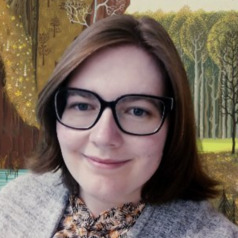
Jacqueline Ristola
Lecturer in Digital Animation, University of Bristol
Dr. Jacqueline Ristola is a lecturer in the Department of Film and Television at the University of Bristol. She received her PhD in Film and Moving Image Studies from Concordia University, Montreal. Her research areas include animation/anime studies, media industry studies, and queer representation. Her work is published in Kinephanos, Synoptique, Con a de animación, and Animation Studies Online Journal, where she was awarded the inaugural Maureen Furniss Student Essay Award. She also co-edited a special issue on LGBTQ Animation for Synoptique: An Online Journal of Film and Moving Image Studies, and has chapter in edited collection on television series Steven Universe and Bojack Horseman.
Less ![]()
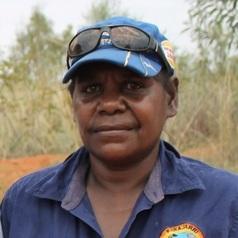
Jacqueline Shovellor
Karajarri Traditional Owner, Cultural Advisor, Karajarri Land Trust Association, Indigenous Knowledge
I am a Karajarri Traditional Owner, with years of experience looking after desert and sea country. I'm a Cultural Advisor, working alongside my elders.
Less ![]()
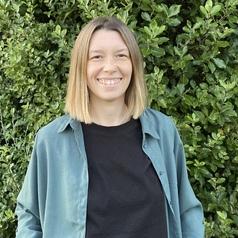
Jacqueline Theis
PhD Candidate (Ecology), University of Otago
I am particularly interested in the role of urban green spaces in fostering habitat for native species and cultivating a sense of place for urban residents. My research is centred around two main areas: developing general biodiversity assessment tools and investigating invertebrate colonisation and community composition within urban green installations.
Less ![]()

Jacqueline Ann Specht
Professor & Director, Canadian Research Centre on Inclusive Education, Western University
Dr. Jacqueline Specht is a professor and the director of the Canadian Research Centre on Inclusive Education at the University of Western Ontario. The centre aims to empower educators with the knowledge they need to be effective with all students in the K-12 schooling system. Dr. Specht’s research expertise is located in the area inclusive education with a focus on educators, leaders, and parents and their roles in developing effective schools for all students. She has worked with schools nationally and internationally to support their transition to inclusive education. Her recent book “Inclusion of Learners with Exceptionalities in Canadian Schools” is a textbook that is used in initial teacher education programs across Canada.
Less ![]()
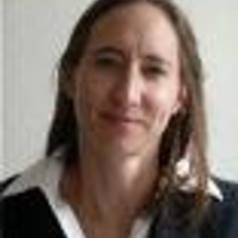
Jacqueline M Klopp
Research Scholar, Center for Sustainable Urban Development, Climate School, Columbia University
Jacqueline Klopp is an Research Scholar and Director at the Center for Sustainable Urban Development at teh Climate School at Columbia University, Previously, she taught the politics of development at the School of International and Public Affairs for many years. A political scientist by training, her work focuses on the political processes around land-use, transportation, violence, displacement and planning in African cities. Klopp is the author of articles for Africa Today, African Studies Review, African Studies, Canadian Journal of African Studies, Comparative Politics, Forced Migration Review, Urban Forum, World Policy Review among others.
Recently, she has been experimenting with creative urban mapping projects for both analysis and advocacy and is a founding member of the DigitalMatatus consortium which has produced the first open transit data and public transit map for Nairobi's quasi-formal "matatu" transit system. She helped start the blogs CairofromBelow and nairobiplanninginnovations.com to provide more grounded and open urban information to citizens. She is also a founder and Board member of the Internal Displacement Policy and Advocacy Center (IDPAC) based in Nakuru, Kenya. She is currently writing a book on the politics of planning in Nairobi.
Klopp received her B.A. from Harvard University in Physics and her Ph.D. in Political Science from McGill University.
Less ![]()
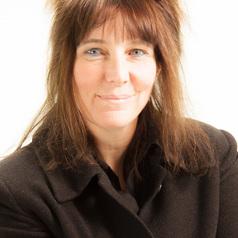
Jacqueline Z. Wilson
Adjunct Associate Professor in History, Australian Catholic University
Jacqueline Wilson is an adjunct Associate Professor at the Australian Catholic University and a visiting fellow at the Australian National University, with over 20 years experience teaching and researching in universities across Australia. She has authored over fifty scholarly publications with a research focus on the
intersections between critical heritage, institutionalisation, incarceration, and sites of
suffering and trauma. Jacqueline is a former State ward and her experience of State care
affords her insider knowledge of those heritage sites where children were incarcerated under
the auspices of welfare and “care”. These experiences inform much of her research into the history of children in out of home care and institutionalisation.
Jacqueline is committed to achieving historical justice for care leavers. Her research has led to policy changes and numerous invitations to speak publicly about her work.
Less ![]()
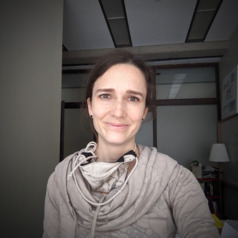
Jacquelyn Sundberg
Outreach Librarian, McGill Library, McGill University
Jacquelyn Sundberg is an Outreach librarian for the rare and special collections units at the McGill University Library. Combining experience in both public and academic libraries with her Masters's degrees in English Literature and Information Studies, she uses her skillset to make library collections accessible to a broader audience. Her work includes grant projects, publications, multimedia projects, websites, videos, and games. Most recently, she created Moments in Time, a chronological card game supported by the library’s SSHRC-funded Serious play initiative.
Less ![]()
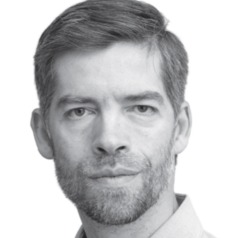
Jacques de Maillard
Professeur des Universités, Université de Versailles Saint-Quentin-en-Yvelines (UVSQ) – Université Paris-Saclay
Jacques de Maillard est professeur de science politique à l'Université de Versailles-Saint-Quentin en Yvelines et à Sciences Po Saint Germain en Laye et Directeur du Centre de recherches sociologiques sur le droit et les institutions pénales (CESDIP, Unité Mixte de Recherche CNRS /Ministère de la Justice/Université Versailles Saint-Quentin-Université Paris Saclay/CY Cergy Paris Université). Il est spécialiste des questions policières et de sécurité publique. Outre de nombreux articles scientifiques, il a publié (avec Fabien Jobard) Sociologie de la police. Politique, organisations, réformes, Paris, Armand Colin, 2015, et Police et société en France (co-dir. avec Wesley Skogan), Paris, Presses de Sciences Po, 2023.
Less ![]()
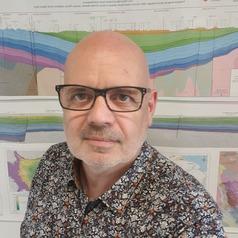
Jacques Pironon
Directeur de recherche au CNRS, Université de Lorraine
Jacques PIRONON a fondé le laboratoire GeoRessources de l’Université de Lorraine et du CNRS (Nancy, France).
Il est Directeur de Recherche au CNRS à l'Institut National des Sciences de l'Univers et Docteur en Géologie de l'Université de Lorraine.
Spécialiste des fluides géologiques en milieu sédimentaire, il pilote des projets de recherche pour réduire la part des émissions de CO2 atmosphérique, pour comprendre la formation des gisements de pétrole et de gaz, pour aider à la surveillance de sites industriels et réduire l’impact environnemental de l’exploitation du sous-sol. Acteur important de la recherche partenariale, il anime des programmes de recherche partagés entre industrie et milieu académique.
Less ![]()
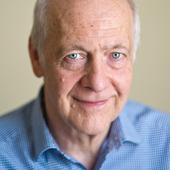
Jacques Rupnik
Directeur de recherche émérite, Centre de recherches internationales (CERI), Sciences Po
Less ![]()
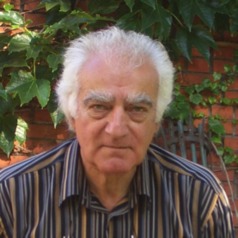
Jacques Treiner
Physicien théoricien, Université Paris Cité
Jacques Treiner a fait paraître une centaine d’articles et d’ouvrages de physique théorique, notamment dans le domaine des fluides quantiques. Il a été professeur à l’Université Pierre et Marie Curie à Paris et a publié des ouvrages de vulgarisation comme « Quel est l’âge de la Terre ? » aux éditions du Pommier (septembre 2011, nouvelle édition juin 2022) et « Un peu de science, ça ne peut pas faire de mal », aux éditions Cassini (juillet 2017). Il a traduit plusieurs ouvrages, dont les Marchands de Doute, de Naomi Oreskès et Erik Conway (Ed. Le Pommier). Il a également réalisé trois films scientifiques, et co-écrit avec Olivier Treiner une pièce de théâtre intitulée « Fission », produite par le théâtre de la Reine Blanche et jouée en 2016. Il intervient comme conférencier sur l’anthropocène et l’articulation des problématiques énergétiques, démographiques et climatiques. Il est aujourd'hui chercheur associé au Laboratoire interdisciplinaire des énergies de demain (LIED) de l'Université Paris-Diderot et préside le Conseil des experts du Shift Project.
Less ![]()

Jacques Bulchand Gidumal
Catedrático de Empresa y Turismo Digital, Universidad de Las Palmas de Gran Canaria
Jacques Bulchand Gidumal es Catedrático de la Universidad de Las Palmas de Gran Canaria en áreas de emprendimiento y turismo digital. Imparte docencia de creación de startups en la Escuela de Ingeniería Informática y de gestión digital de las organizaciones y de turismo digital en la Facultad de Economía, Empresa y Turismo. Su labor de investigación se centra en las tecnologías en el sector turístico y en el ámbito del emprendimiento, teniendo dos sexenios de investigación reconocidos. Es Licenciado en Informática y Doctor en CC.EE. y Empresariales. Cuenta con 10 años de experiencia en el sector público y 10 en el sector privado en tareas de dirección y gestión de los sistemas y tecnologías y de consultoría informática. Asesor de numerosas organizaciones en procesos de innovación, transformación digital y modelos de negocio. Colaborador y mentor de distintas startups, así como pequeño inversor. Es el actual Presidente de IFITT (International Federation for IT and Travel & Tourism).
Less ![]()

Jacques E. Chelly
Professor of Anesthesiology, Perioperative Medicine and Orthopedic Surgery, University of Pittsburgh
Dr. Chelly has over 30 years of clinical research experience and developed the Department of Anesthesiology and Perioperative Medicine’s Clinical Research Program that has enrolled thousands of research subjects since July 2002.
Dr. Chelly’s research interests include postoperative outcomes and pain after surgeries, including abdominal oncologic surgery, and orthopedic, trauma, and thoracic surgery. More recently, Dr. Chelly has been involved with complementary medicine including auriculotherapy, aromatherapy, and CBD.
Less ![]()

Jacqui Francis
Lecturer and researcher, The Centre for Wellbeing Science, The University of Melbourne
Less ![]()
- Market Data





















